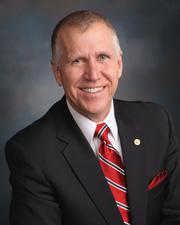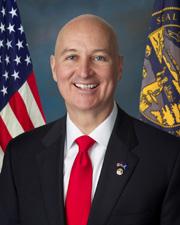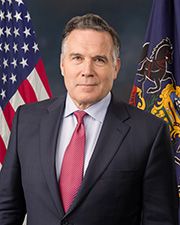1
0
0
FIRM Act
4/2/2025, 2:36 PM
Summary of Bill S 875
Bill 119 s 875 aims to address the issue of political influence within Federal banking agencies by removing reputational risk as a factor in the supervision of depository institutions. The bill seeks to prevent these agencies from being used as political tools, ensuring that their focus remains on the financial stability and soundness of the institutions they oversee.
The bill specifically targets the practice of using reputational risk as a justification for imposing additional regulatory requirements on banks and other depository institutions. By eliminating this consideration, the bill aims to prevent regulatory decisions from being influenced by political considerations rather than objective financial criteria.
Supporters of the bill argue that removing reputational risk as a factor in supervision will help to ensure a more transparent and fair regulatory process for depository institutions. They believe that this will ultimately lead to a more stable and efficient banking system. Opponents of the bill, however, argue that reputational risk is an important factor in assessing the overall health of a depository institution and that removing it from consideration could weaken the regulatory oversight of these institutions. Overall, Bill 119 s 875 seeks to promote the independence and integrity of Federal banking agencies by preventing them from being used for political purposes. The bill is currently under consideration in Congress and its ultimate impact on the banking industry remains to be seen.
The bill specifically targets the practice of using reputational risk as a justification for imposing additional regulatory requirements on banks and other depository institutions. By eliminating this consideration, the bill aims to prevent regulatory decisions from being influenced by political considerations rather than objective financial criteria.
Supporters of the bill argue that removing reputational risk as a factor in supervision will help to ensure a more transparent and fair regulatory process for depository institutions. They believe that this will ultimately lead to a more stable and efficient banking system. Opponents of the bill, however, argue that reputational risk is an important factor in assessing the overall health of a depository institution and that removing it from consideration could weaken the regulatory oversight of these institutions. Overall, Bill 119 s 875 seeks to promote the independence and integrity of Federal banking agencies by preventing them from being used for political purposes. The bill is currently under consideration in Congress and its ultimate impact on the banking industry remains to be seen.
Congressional Summary of S 875
Financial Integrity and Regulation Management Act or the FIRM Act
This bill prohibits the consideration of reputational risk by federal banking agencies when regulating, examining, or supervising a depository institution or credit union. The bill defines reputational risk as the potential for negative publicity or public attention to decrease confidence in the institution, lead to litigation, reduce revenues, or result in other adverse impacts to the institution.
Agencies must report on the implementation of this bill.
Read the Full Bill
Current Status of Bill S 875
Bill S 875 is currently in the status of Bill Introduced since March 6, 2025. Bill S 875 was introduced during Congress 119 and was introduced to the Senate on March 6, 2025. Bill S 875's most recent activity was Placed on Senate Legislative Calendar under General Orders. Calendar No. 32. as of March 18, 2025
Bipartisan Support of Bill S 875
Total Number of Sponsors
1Democrat Sponsors
0Republican Sponsors
1Unaffiliated Sponsors
0Total Number of Cosponsors
12Democrat Cosponsors
0Republican Cosponsors
12Unaffiliated Cosponsors
0Policy Area and Potential Impact of Bill S 875
Primary Policy Focus
Finance and Financial SectorAlternate Title(s) of Bill S 875
A bill to curtail the political weaponization of Federal banking agencies by eliminating reputational risk as a component of the supervision of depository institutions.
A bill to curtail the political weaponization of Federal banking agencies by eliminating reputational risk as a component of the supervision of depository institutions.
Comments

Cade Pickett
492
9 months ago
This bill bad for banks. How it hurt regular folks like me?
Sponsors and Cosponsors of S 875
Latest Bills
To authorize, ratify, and confirm the Agreement of Settlement and Compromise to Resolve the Akwesasne Mohawk Land Claim in the State of New York, and for other purposes.
Bill HR 2916December 11, 2025
Holocaust Expropriated Art Recovery Act of 2025
Bill S 1884December 11, 2025
Public Lands Military Readiness Act of 2025
Bill HR 5131December 11, 2025
Dalles Watershed Development Act
Bill HR 655December 11, 2025
STARS Act
Bill HR 4285December 11, 2025
To designate the facility of the United States Postal Service located at 86 Main Street in Haverstraw, New York, as the "Paul Piperato Post Office Building".
Bill HR 1009December 11, 2025
Make SWAPs Efficient Act of 2025
Bill HR 1676December 11, 2025
Miccosukee Reserved Area Amendments Act
Bill HR 504December 11, 2025
To designate the facility of the United States Postal Service located at 298 Route 292 in Holmes, New York, as the "Sheriff Adrian 'Butch' Anderson Post Office Building".
Bill HR 1008December 11, 2025
Lower Elwha Klallam Tribe Project Lands Restoration Act
Bill HR 2388December 11, 2025
FIRM Act
Bill HR 2702July 15, 2025





